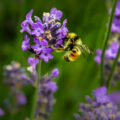Which Insects Sting?

Are you ready to discover who truly rules in nature? It’s fascinating how nature constantly raises questions for us: Which insects actually sting? And, do beetles really sting too? Whether you’re hiking, camping, or just relaxing in your own garden, knowing which insects sting can make the difference between a good and bad outdoor experience.
This guide takes you on a journey through the world of insects, from the usual culprits to the less expected stingers. Let’s uncover the hidden details behind the simple question: Which insects sting humans? And which ones can even sting through clothing?
We’ll take a close look at our incredibly useful insect world without even stepping outside. We’ll reveal which insects really sting and provide practical tips on how to best deal with the itchy and swollen consequences of these tiny attackers.
Which Insects Can Sting? The Usual Suspects
If you’re wondering which insects actually sting, here are a few of the usual suspects responsible for many unpleasant summer experiences. Whether in the garden, during outdoor activities, or on the balcony, these little pests stop at nothing:
- Bees and Wasps: They often top the list when it comes to stinging insects. Bees sacrifice their lives for a sting since they lose their stinger and sadly die. Wasps, on the other hand, can sting multiple times and show less restraint in their attacks.
- Mosquitoes: The little vampires of the insect world, known for their stealthy attacks at dusk. Female mosquitoes can even sting through tight, thin clothing to gather protein for their eggs, often leaving itchy and unpleasant bites that are, however, easy to treat.
- Horseflies: Less known but equally feared, especially for their painful sting. These robust insects are often found near water, and their bites can cause particularly strong reactions.
These prominent pests highlight how important it is to know which insects can sting when enjoying nature. And what about flies? Which flies sting? While ordinary houseflies are just annoying but harmless, there are species like the black fly, which actually bite rather than sting. These small flies use their mouthparts to cut the skin to suck blood.
Less-Known Examples: A Glimpse into the Hidden World of Insects
In the shadows of well-known mosquitoes and bees, there are numerous insects with their own little secrets. Just in time for the start of summer, discover which insects sting but are often overlooked:
- Parasitic Wasps: These helpful wasps have an egg-laying apparatus that looks like a stinger. Parasitic wasps do not sting and pose no threat to humans but are true heroes in pest control.
- Crane Flies: They don’t sting but look like giant mosquitoes. These gentle giants of the insect world are completely harmless.
- Beetles/Oil Beetles: While most beetles are harmless, there are exceptions like the oil beetle. It doesn’t sting but can release a skin-irritating chemical when threatened.
- Black Flies: These small, aggressive flies with sharp biting mouthparts cause painful bites that lead to significant swelling.
Remember: no matter which insects sting, each of these tiny creatures plays a crucial role in our ecosystem. They pollinate flowers, feed birds, and help keep our planet clean. Their importance goes far beyond the temporary annoyance of a sting, so let’s give them the respect they deserve!
New and Exotic Stingers: Which Insects Sting from Overseas?
Our world is becoming more connected, and we encounter new challenges in the form of stinging insects that were not previously native to our regions. So, especially before traveling abroad, find out which insects sting or bite and how you can best protect yourself. Here are two particularly notable ones you should know about:
- Asian Tiger Mosquito: This invader from distant lands is increasingly spreading in Europe. Known for its aggressive stinging behavior, the Asian tiger mosquito transmits diseases like Zika and Chikungunya. Its adaptability is remarkable – it even survives in temperatures as low as minus 20 degrees Celsius.
- Sandflies: These small insects bite and are primarily found in tropical and subtropical regions, but there have been occasional sightings in Germany. Their bite is not only unpleasant but can also transmit the serious disease leishmaniasis, which causes severe skin ulcers.
So, keep yourself well-informed to better understand which insects sting. The more you know about these small but significant animals, the calmer you can react to their presence!
Prevention Strategies: Which Insects Sting and How to Avoid Bites
Even though insects sometimes seem like major villains, they’re simply following their natural instincts. Insect repellents with DEET or picaridin can keep them away – when using them, make sure they are safe for your health and the environment. But you can also go without chemicals! To be better prepared for which insects sting and how to best avoid bites, follow these simple and natural steps:
- Smart Clothing Choices: Lightweight, airy, and light-colored clothing can be your best defense. Long sleeves and pants reduce the target area for hungry insects.
- Timing Is Everything: Avoid being outdoors in the early morning or late evening when many insects are out hunting.
- Standing Water: Regularly change water in bird baths and keep water barrels further away – mosquitoes breed in standing water.
- Natural Repellents: Use aroma diffusers with oils like lavender or lemon, which not only smell good but also keep stinging guests away.
- Protection Nets When Traveling: Even if you know which insects sting and which don’t, in tropical regions, a mosquito net over the bed is an effective protection.
If you do get stung by a bee, wasp, mosquito, or horsefly, an insect bite healer is a quick and effective solution to relieve the itching and swelling. This small gadget uses heat to dissolve the irritating proteins – completely chemical-free, gentle on the skin, and ideal for on-the-go.
Sure, it’s important to know which insects sting and which don’t – but stings usually happen out of defense or necessity and generally don’t cause permanent damage – most are short-lived and more annoying than dangerous. Stinging insects may be small troublemakers – but despite the annoyance they sometimes cause, they play a key role in nature.




